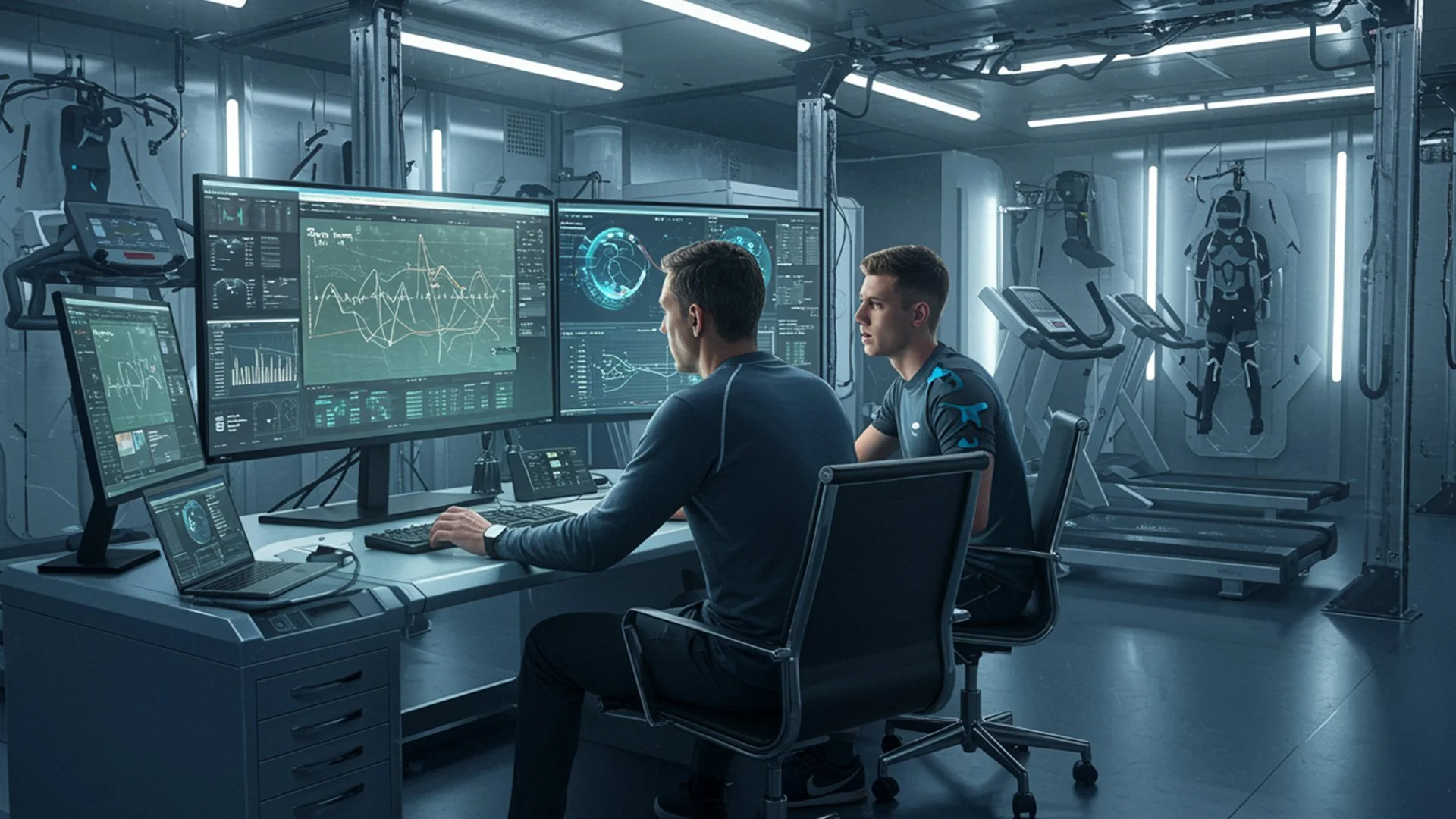AI for Athlete Performance Enhancement: Beyond Human Limits?
Introduction
In today's data-driven world, artificial intelligence (AI) is not merely a futuristic concept; it's an integral part of our everyday lives. From robotic vacuum cleaners in our homes to sophisticated recommendation systems on our phones, AI is redefining possibilities. Now, imagine a world where AI helps athletes not just meet but exceed what is currently considered the pinnacle of human performance. This isn't just science fiction; it's reality, and it's happening right now. For working professionals, understanding AI's role in athletic performance opens up broader discussions about embracing technology in various industries. AI is enhancing athletic performance in unprecedented ways, making it a pivotal topic for professionals interested in physical performance, technology, and innovation.
Real-time Data Analytics and Wearables
Harnessing Data for Peak Performance
Athletes, whether on the field, track, or court, generate a treasure trove of data with every move they make. Wearable technology—equipped with sensors that track biometrics—collects real-time data which AI analyses to provide instant feedback. For instance, GPS trackers in sports like football or rugby can track an athlete's speed, distance, and workload, facilitating adjustments in real-time. The implications for working professionals are vast: imagine applying similar data-driven insights in workplace productivity or health monitoring tools.
Through real-time data analytics, athletes can maintain optimal performance levels by identifying areas of improvement and avoiding overtraining. This proactive approach, mirroring preventive strategies in occupational health, helps extend athletic careers and optimise performance. The crossover potential for industries is immense, particularly in high-stakes environments where performance and health intersect.
AI-driven Training Personalisation
Tailoring Regimens to Individual Needs
In the new age of athletic training, one-size-fits-all is no longer the norm. AI-driven platforms provide personalised training regimens, accommodating an athlete's specific strengths and weaknesses. For instance, platforms like WHOOP or Strava integrate AI algorithms to customise training plans based on individual biometrics, goals, and historical data.
For working professionals, the approach exemplified by AI in sports can mean a paradigm shift in personal skill development. Much like athletes use AI to tailor their training for maximum effectiveness, professionals could leverage AI to customise learning paths for career development, promoting continuous personal growth and efficiency.
Injury Prediction and Prevention Through Machine Learning
Staying Ahead with Predictive Insights
Injuries can be devastating to athletes and teams, but AI is changing the game with predictive analytics. Machine learning models analyse patterns in performance data to predict potential injuries before they happen, allowing preemptive measures. For example, IBM Watson has delved into basketball, using AI to predict injury risks by analysing players' physical strain and game metrics.
For professionals, this proactive approach resonates with risk management and workplace safety. By analysing patterns in workplace data, industries can predict potential operational risks and implement corrective actions before issues arise, enhancing safety and efficiency.
Ethical Implications and Human-AI Synergy
Navigating the Ethical Landscape
While AI offers vast enhancements, it also brings ethical considerations, particularly concerning data privacy and the potential for technology to replace human expertise. In sports, questions arise about the fairness of AI-enhanced human performance and the principles of competitive equity.
This dialogue extends into the professional realm, raising questions about AI's role and the importance of maintaining a human touch. Professionals must balance technological capabilities with ethical use, ensuring AI supports human expertise rather than supplanting it. This balance fosters a synergy where AI amplifies human potential rather than undermining it, encouraging more responsible and innovative applications across industries.
Case Studies of AI Adoption in Professional Sports
Learning from the Pioneers
Consider the NFL's partnership with Amazon Web Services (AWS), utilising AI to analyse player health and safety data, leading to rule changes that reduce concussion risks. In another case, the English Premier League leverages AI for advanced match analytics, providing insights that improve team performance and fan engagement.
These case studies illustrate AI's transformative power in sports, offering a blueprint for other sectors. For professionals, understanding these applications can inspire novel uses of AI in areas such as customer engagement, operational efficiency, and strategic decision-making.
Conclusion
AI is pushing the boundaries of what athletes can achieve, providing tools that fine-tune performance, predict risks, and personalise training regimes beyond what was once imaginable. For professionals, the successful integration of AI in sports serves as inspiration to utilise similar technologies within their industries. The key takeaway is not just AI's capability to enhance performance, but its potential to foster innovation across sectors, fuelling progress and exceeding boundaries thought to be impenetrable.
As we embrace these technological advances, the challenge is not only to integrate these systems into our lives but to ask how they might redefine what it means to operate "beyond human limits." AI's role in athletics is a testament to human creativity and innovation, suggesting a future where boundaries are continually pushed, not just in sport, but in every field from medicine to business. This perspective encourages professionals to view AI as a catalyst for growth and change, a tool to transcend current capabilities and achieve unprecedented success.
References1. Athletes and wearable technology: https://www.kouvola.fi2. IBM Watson's role in basketball injury prediction: https://ibm.com)3. Ethical implications in AI-enhanced sports: https://bb.com4. NFL's partnership with AWS: https://aws.amazon.com5. English Premier League's use of AI: https://premierleague.com

